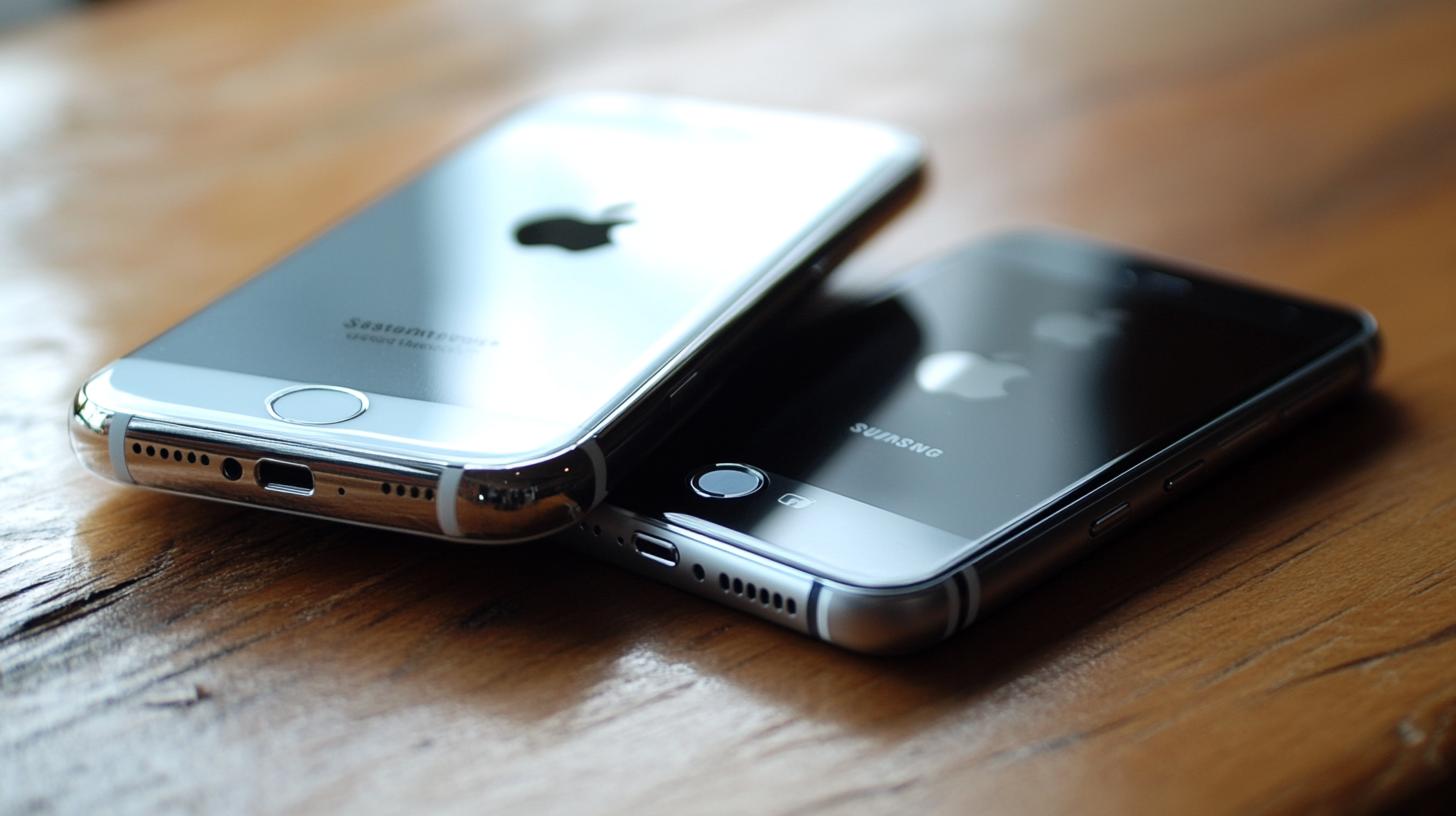In the ever-evolving world of smartphones, the enduring debate remains: is the iPhone or a Samsung phone the better choice? Both brands offer a range of devices that cater to different needs and preferences, but let’s break down some key aspects to consider.
When it comes to operating systems, the iPhone runs on Apple’s iOS, while Samsung smartphones use Google’s Android. iOS is celebrated for its intuitive interface and seamless integration with other Apple products. On the other hand, Samsung’s Android-based UI offers a high degree of customization, making it a favorite for those who enjoy tailoring their device to personal preferences.
In terms of hardware, both brands excel but in different ways. The iPhone is known for its sleek design, consistent build quality, and optimized performance, thanks to Apple’s control over both the hardware and software. Meanwhile, Samsung is often praised for its cutting-edge display technology, particularly its Super AMOLED screens, which provide vibrant and rich color reproduction.
Camera quality is another critical consideration. Apple’s iPhones are renowned for their reliable camera systems, often excelling in color accuracy and low-light performance. Samsung’s phones frequently pack more features into their cameras, offering higher levels of zoom and detailed customization options for photography enthusiasts.
Finally, consider ecosystem compatibility. If you’re embedded in Apple’s ecosystem with devices like a MacBook or an iPad, an iPhone could be more beneficial due to seamless integration. However, Samsung offers compatibility with a broader range of devices and smart home products, thanks to Android’s more open platform.
Ultimately, the “better” phone depends on your personal needs and preferences. Both iPhone and Samsung offer impressive benefits—it’s all about what you value most in a smartphone.
Apple vs Samsung: Unveiling Surprising Truths and Controversies in Smartphones
In the world of smartphones, the battle between Apple’s iPhone and Samsung continues to spark discussions beyond specs and features. Let’s look at unforeseen factors impacting consumer choices and broader societal effects here and abroad.
One notable aspect is durability and repairability. While iPhones boast premium designs, criticisms arise around their fragility. Cracked screens or water damage lead to costly repairs often managed through Apple’s proprietary services. Samsung, conversely, has been making strides in providing phones with more durable build quality, such as water-resistant ratings and Gorilla Glass protection, yet availability of parts can fluctuate based on region, affecting service accessibility.
In terms of affordability, this divergence becomes prominent in emerging markets. iPhones typically hold high price points, making them more status symbols than accessible tech. Samsung’s diverse range of series—from luxury to budget—allows for wider adoption, possibly elevating tech literacy in different communities.
A larger controversy surrounds the environmental impact. Apple claims leadership in carbon neutrality efforts, aiming to have all products by 2030 made using only recycled and renewable materials. Samsung is also investing in sustainable practices, but critics argue the pace and transparency differ, which influences eco-conscious buyers.
Curious minds might ask: Which phone is better for me? If your priority is inter-device connectivity and design, Apple’s ecosystem can be compelling. However, for diversity, innovation in displays, and fiscal flexibility, Samsung stands out.
For more, visit Apple and Samsung.







